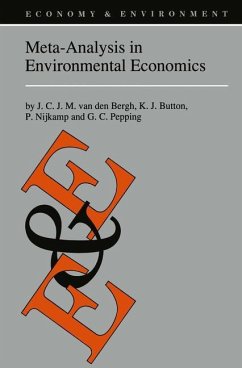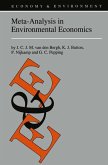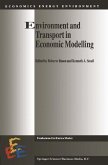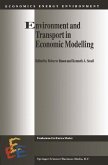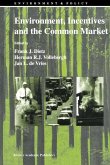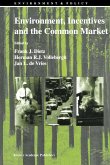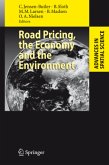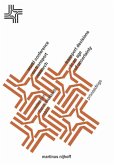Meta-analysis is a formal synthesis of results and findings of scientific studies, which can assist in gaining new insights, explaining differences between results of similar studies, or determine useful directions of research. In this book we focus on the use of meta-analysis in environmental economics and related fields of study.
The first part of the book covers the overall meta-approach methodology for social sciences and economics in particular. This is followed by technical and non-technical discussions of statistical and rough-set techniques for analysis. At appropriate places this is supplemented with reviews of applications in environmental economics and related fields.
In the second part of the book a number of case studies show different aspects of the application of meta-analysis. The research areas considered include, among others, tourism multipliers, air pollution valuation, risk and value of life, pesticide price policy, travel time savings, and transport externality and policy issues. The benefits of the appropriate application of meta-analysis in environmental economics are a better use of existing information and knowledge, removal of some of the subjectivity from analysis and forecasting, and greater clarity as to where future efforts in environmental economic analysis can most gainfully be deployed.
The first part of the book covers the overall meta-approach methodology for social sciences and economics in particular. This is followed by technical and non-technical discussions of statistical and rough-set techniques for analysis. At appropriate places this is supplemented with reviews of applications in environmental economics and related fields.
In the second part of the book a number of case studies show different aspects of the application of meta-analysis. The research areas considered include, among others, tourism multipliers, air pollution valuation, risk and value of life, pesticide price policy, travel time savings, and transport externality and policy issues. The benefits of the appropriate application of meta-analysis in environmental economics are a better use of existing information and knowledge, removal of some of the subjectivity from analysis and forecasting, and greater clarity as to where future efforts in environmental economic analysis can most gainfully be deployed.

